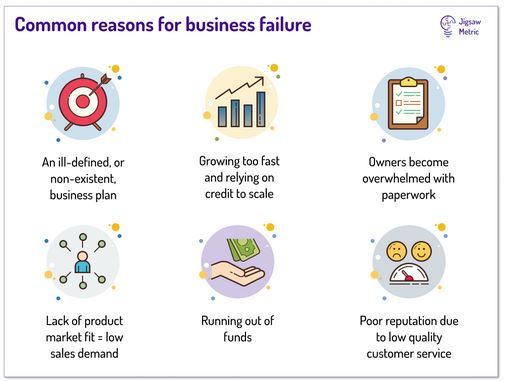#whybusinessfail
Explore tagged Tumblr posts
Text
10 Proven Strategies to Avoid Small Business Failure

TheAussieway is a popular Australian blog that posts about trending news and stories on business, startup news, inspirational stories, lifestyle, travel, and more. This guest posting was written specifically for Booch News.
Starting a profitable business is an exciting venture, offering opportunities to bring innovative ideas to life. However, the journey is not without its challenges. A significant number of small businesses face obstacles that lead to closure within the first few years, contributing to a worrying business failure rate worldwide.
According to the U.S. Bureau of Labor Statistics (BLS), approximately 20% of new businesses fail during the first two years of being open, 45% during the first five years. Understanding why businesses fail is the first and most crucial step to building a resilient enterprise. Below are ten proven strategies to help you create a sustainable and thriving business.

1. Understand Why Businesses Fail
Many entrepreneurs jump into business without fully understanding the challenges that lie ahead. The most common business failure reasons include poor financial management, lack of market research, insufficient demand, and failure to adapt. For instance, some startups overestimate their initial sales projections, leading to cash flow shortages. By thoroughly researching and addressing these risks, you can prepare your business to weather challenges effectively.
2. Choose a Viable Business Model
The foundation of any successful business lies in a solid and practical business model. Not all ideas are destined to become profitable business ideas, so it’s essential to test your concept before fully committing. Use tools like SWOT analysis (Strengths, Weaknesses, Opportunities, Threats) to evaluate your idea. For example, if you’re planning to open a kombucha taproom, assess the foot traffic in your area, competitors, and customer preferences to ensure your model is viable. Choosing a scalable business model aligned with your skills and market demands will greatly improve your chances of success.
3. Focus on Financial Management
A staggering number of small businesses close due to financial mismanagement. Simply put, if your expenses exceed your income, your business won’t survive. Successful businesses track their cash flow meticulously, ensuring they always have a cushion for unexpected challenges. For instance, an emergency fund equal to three months of operating costs should be set aside. Tools like Xero or QuickBooks can help you stay on top of your finances while consulting a financial advisor can provide additional guidance. Strong financial management is key to avoiding the pitfalls of business failure.
4. Identify Profitable Business
The world market is rich with opportunities across various sectors, but success depends on identifying niches that suit your skills and align with market needs. For example, e-commerce has seen a massive surge in recent years, with products like eco-friendly goods and locally-made items in high demand. Exploring profitable business ideas could offer significant returns. Always analyze trends and customer behaviours to pinpoint areas with growth potential.
5. Address the Needs of Your Target Audience
A common mistake made by startups is failing to truly understand their audience. Knowing your customers—what they value, their pain points, and their purchasing habits—can help you tailor products and services that meet their needs. Tools like Google Analytics, customer surveys, and social media insights can provide valuable data. Solving real customer problems will keep them loyal and reduce the risk of failure.
Read more - 10 Proven Strategies to Avoid Small Business Failure, by TheAussieway
0 notes